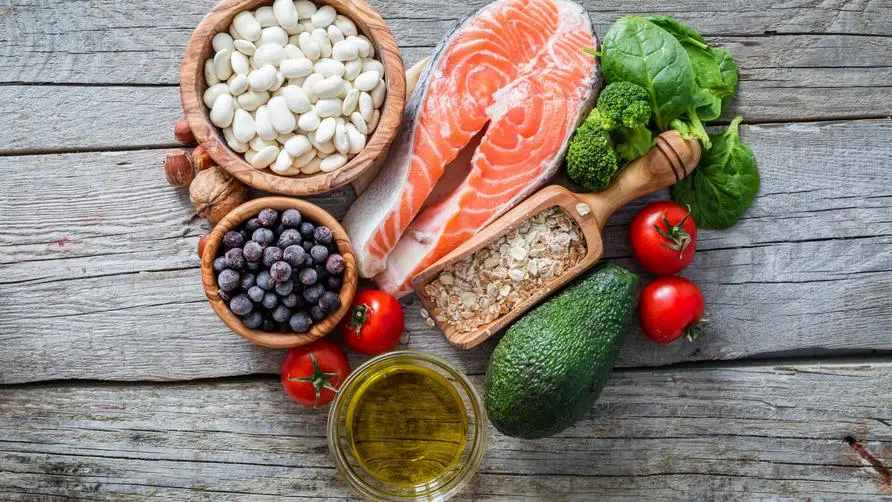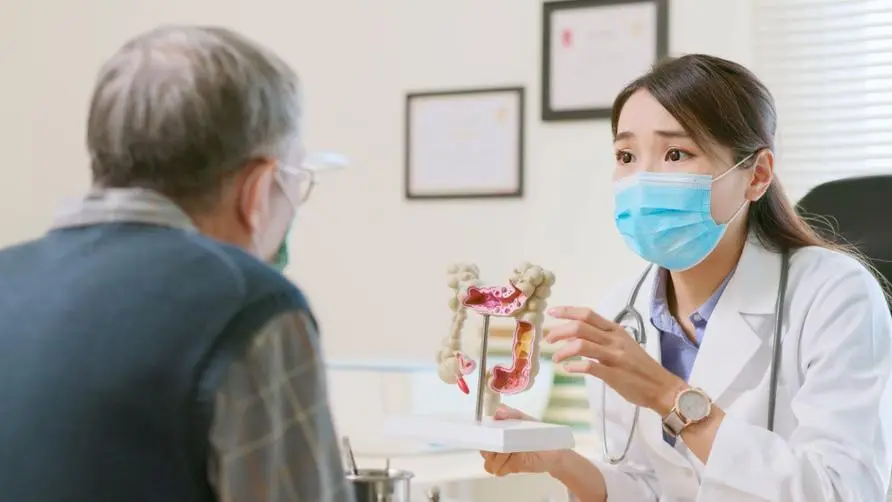Are you over fifty and have a lot of physical problems? What health checks should elders do? Experts recommend these "three major projects"

Do you have a lot of minor health problems when you are over 50? Experts urge “three major health check-up items” to be done
As we age into our 50s, we have a lot of minor health problems. Although they are not serious, we are worried about the impact on our health in the future. How should I help my partner and myself take care of our health at this time? Where can we start to improve? Director Zeng Feijing, Director of the Nursing Department of the Health Management Center of Lian On Clinic, said that as we enter our 50th birthday, we should detect abnormalities as early as possible, deal with uncomfortable symptoms, and actively understand our own health.
Director Zeng Feijing said that it is recommended to check one’s own hormonal status as early as possible, and whether the current symptoms are related to hormonal imbalance, and determine whether oral supplements or health foods are needed. When hormones are insufficient, cardiovascular and cerebrovascular protection will decrease, and the risk of cardiovascular disease, stroke, and cancer may increase. Therefore, “cancer” and “cardio-cerebrovascular” are the issues that require the most attention at this stage.
In addition to hormonal examinations, you should also use health examinations to understand your health status through quantitative data. If you don’t know how to arrange a health examination for yourself, Director Zeng Feijing has sorted out the following 3 major types of examinations that can be prioritized :
1. Cancer prevention check-up
Ultrasound of various organs: abdomen (liver, gallbladder, pancreas, spleen, kidney), thyroid, breast, uterus and ovary ultrasound, etc.
Mammography, 3D digital breast three-dimensional multi-slice photography
Pap smear test
Nasopharyngeal endoscopy
Painless gastroenteroscopy
Tumor markers
Computed tomography of lungs
Brain structural magnetic resonance imaging MRI
2. Cardiovascular and cerebrovascular examination
Physiological and blood biochemical index examination
Blood pressure, heart rhythm data
Blood (blood sugar, blood lipids, uric acid)
Body mass index, visceral fat index
Cardio-cerebrovascular structural examination
Cardiac ultrasound
Carotid artery ultrasound
Arteriosclerometer
Cardiac calcium index analysis CTA
Brain neurovascular magnetic resonance imaging (MRA)
Cardiovascular function test
Resting ECG
Exercise ECG
3. Functional Medicine Testing
Analysis of sex hormones and adrenal stress cortex: Hormone imbalance increases the risk of cancer, cardiovascular disease, sexual dysfunction, dementia and depression, and is also closely related to aging.
Atherosclerosis progression analysis: can help understand the causes of atherosclerosis and the concentration of cardiovascular-related inflammatory substances.
Fatty acid analysis: can understand the concentration and balance status of saturated, unsaturated, and trans fatty acids in the body.
In addition to the above-mentioned examinations, Director Zeng Feijing also said that lifestyle adjustments should also take the prevention of cardiovascular and cerebrovascular diseases and cancer as the primary consideration.
People over 50 years old need to understand! The United States releases “5 major cancer prevention guidelines”
Director Zeng Feijing pointed out that in 2020, the American Cancer Society conducted relevant research on cancer prevention and proposed the latest cancer prevention guidelines. People over the age of 50 can follow these 5 guidelines to build a healthier body:
Maintain a healthy weight: Avoid rapid weight gain caused by hormonal imbalance, and keep the measured BMI value within the normal range.
Develop exercise habits: Adults should conduct 150-300 minutes of moderate-intensity training, or 75-150 minutes of high-intensity training, or a combination of equal-intensity physical exercise per week. It is optimal to reach the upper limit of 300 minutes per week. .
Stay away from tobacco, alcohol and betel nut: stay away from first-level carcinogens.
Eat more fruits and vegetables of five colors: Eat a plant-based diet and consume a variety of colorful foods such as vegetables, fruits, whole grains and beans as nutrients that provide dietary fiber and reduce the risk of cancer.
Reduce processed diet: Limit red meat intake, and avoid processed foods, sugary drinks, and refined starch.
Director Zeng Feijing said that people must avoid “sitting for long periods of time” in daily life and incorporate sufficient exercise at the right time. Literature has proven that exercise is effective in preventing cancer. In addition, the diet should be supplemented with as much oil and high-quality protein as possible; the nutritional needs after the age of 50 are different from those when young, and the supplementary skin care products also need to be adjusted. Antioxidant vitamin analysis can be used to understand what nutrients the body lacks, and prescribe appropriate medicines. Make improvements.
Over 50 years of age may also lead to poor sleep quality due to reduced melatonin. At this time, you should face up to your sleep problems. If you have symptoms such as snoring and sleep disorders, seek medical advice as soon as possible. You can also check whether it is caused by hormonal changes. Since your body will begin to age slowly after the age of 50, you must remain optimistic and positive mentally to avoid premature aging and dementia, and to welcome the second half of your life.
Further reading:





